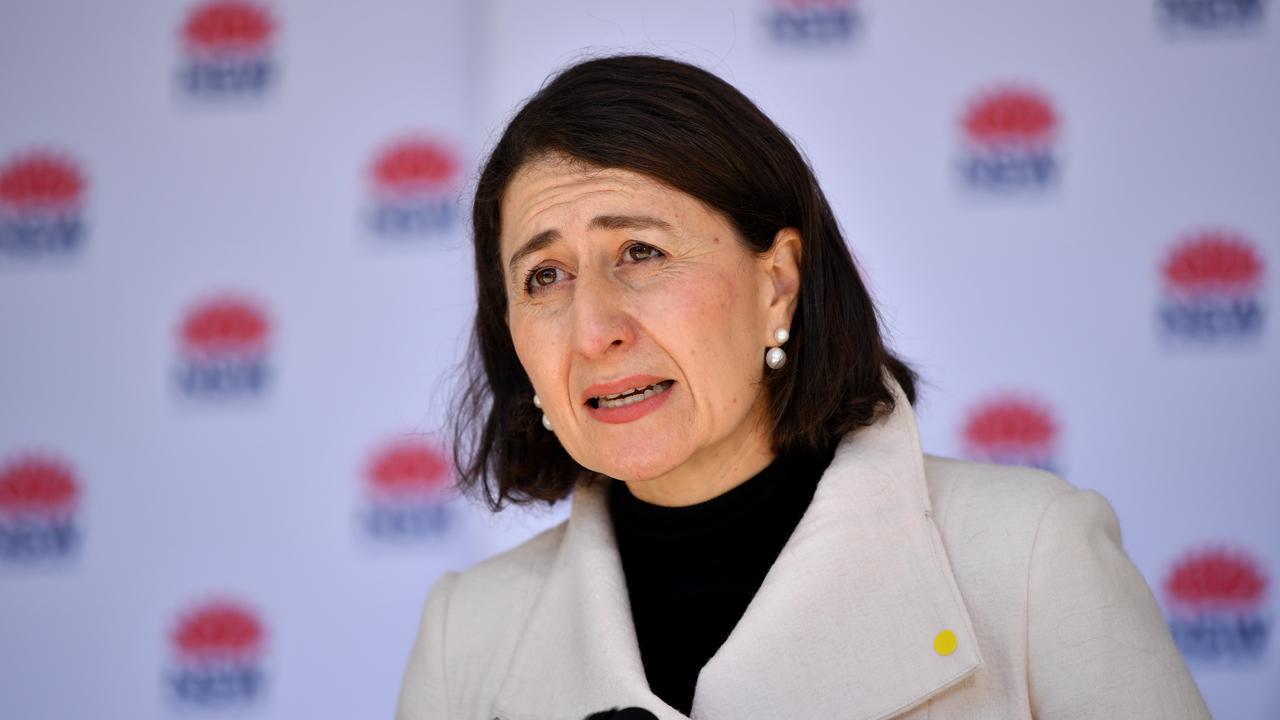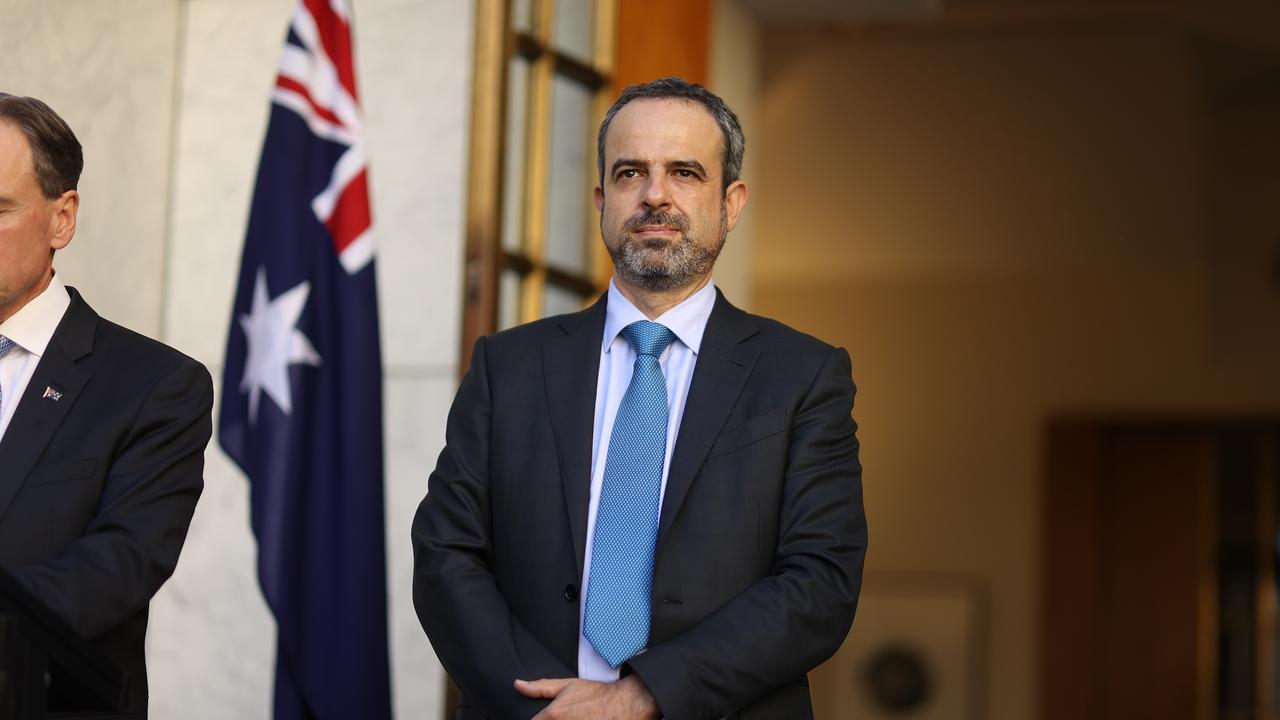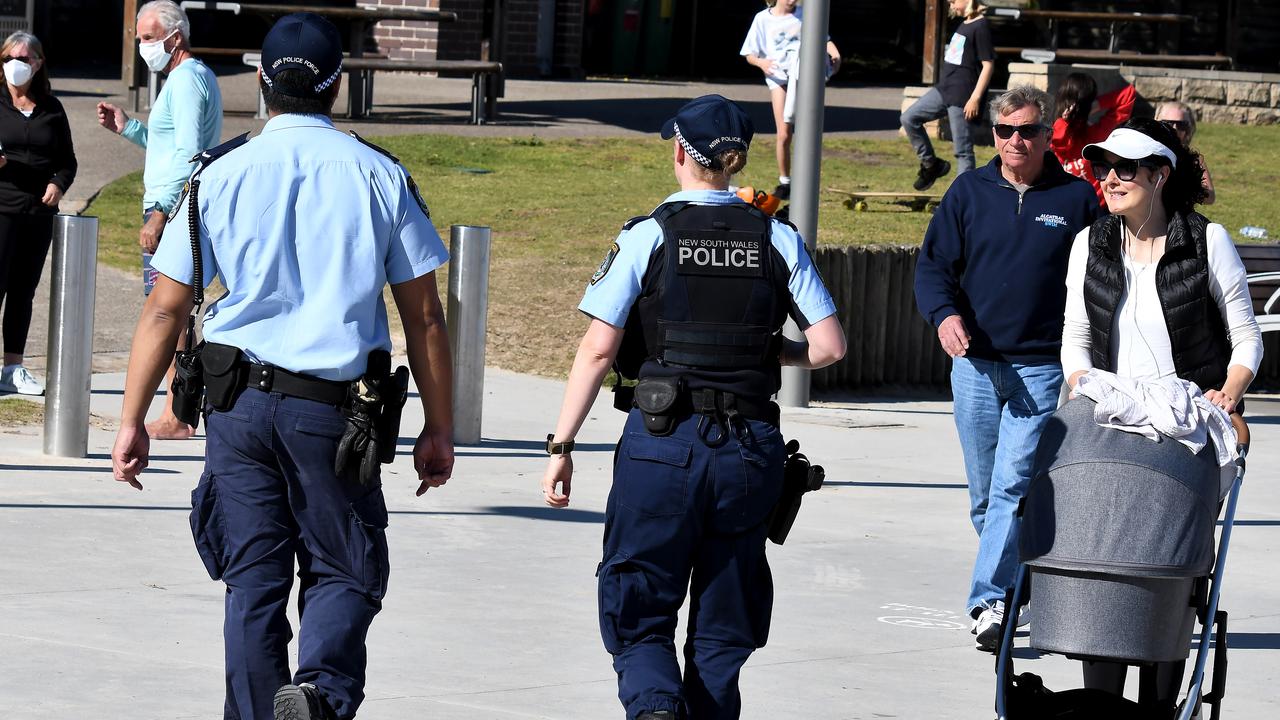Gladys Berejiklian hints tougher lockdown is on the way for NSW
Premier Gladys Berejiklian has warned NSW will act “within hours” if tougher restrictions are needed, with the state recording 97 new virus cases.
Pressure is mounting on the NSW Government to introduce a stricter lockdown in order to quash its worst outbreak since the pandemic began.
Speaking to reporters today after announcing another 97 new virus cases, Premier Gladys Berejiklian warned residents in Greater Sydney she could act “within hours” if tougher restrictions are needed.
“If (chief health officer] Dr (Kerry) Chant says to us there are further things we need to introduce to reduce mobility that is what we will do. We will not hesitate to do that,” Ms Berejiklian said, adding any new restrictions would need to be “targeted” to ensure an impact on escalating infection numbers.
“We will take whatever decision is required to have this lockdown go for as short a period as possible.”
The Premier added that any further restrictions need to “really, really have the desired effect of getting down those numbers, especially (the) number of people presenting with the virus still in the community”.
But this afternoon, Australian Medical Association (AMA) President, Omar Khorshid, urged Ms Berejiklian to take action now or risk her state’s capital being locked down “indefinitely”.
“If we don’t see a drop in numbers the lockdown cannot simply be withdrawn and Sydneysiders are looking at extreme restrictions for the foreseeable future until everyone is vaccinated,” Dr Khorshid told reporters in Perth.
RELATED: Follow our live coronavirus updates


Dr Khorshid said the AMA “is calling for a lockdown more Victorian in style, with very clear restrictions on what people can do to limit contact between people, between families and in particular to limit contact at work”.
“What we do mean by this is we mean closing retail that is not essential. That should not be up to common sense, not up to people doing the right thing but an edict from government to close non-essential retail,” he added.
“It means closing non-essential businesses, as was done during the lockdown in Victoria … These measures are needed, they are not going to have a negative economic impact on Sydney because if they are not done, the economic impact on Sydney will be extraordinary.
“It is time to take this seriously, it is time to not be hesitant, do not be worried about how this might be perceived by the community.
“Take decisive action to address this crisis in Sydney and to give Sydney the best chance of getting out of this within weeks rather than months.”
RELATED: Our premiers are acting like children

In a statement earlier today, Dr Khorshid said that the latest numbers from NSW “show while the virus is not escalating out of control, current restrictions are not strong enough to bring overall infection numbers down any time soon”.
“Rising unlinked cases and people infectious in the community show we are not ahead of this outbreak. This means there is no end to the lockdown in sight and more needs to be done,” he added.
“While we appreciate just how hard things are for people living in Greater Sydney, more delay will simply make things much worse and impose a much bigger toll on the community – with the announcement of additional support for workers and businesses, there is no excuse for further hesitation or delay.”
As for what it will take to end lockdowns indefinitely in Australia, former deputy chief medical officer Dr Nick Coatsworth told The Australian Financial Review it’s a feat that could be achieved in about four months — once 50 per cent of people are vaccinated.
“We need to consider what are the consequences of locking down on younger Australians’ jobs in the gig economy and mental health,” Dr Coatsworth said.
Australia cannot “have your cake and eat it too”, however — and must accept that zero deaths from Covid-19 is unrealistic if the goal is to eventually treat the virus like the seasonal flu.
“You can’t say no Covid death is acceptable, while saying it is going to be treated like influenza,” he said.
“If you say you’re going to treat it like influenza and get a jab every year, influenza kills people.
“2021 has to be a transition year where we get the Australian community used to the idea of Covid in our community through a successful vaccination program, and 2022 needs to be the year we have Covid in Australia.”




